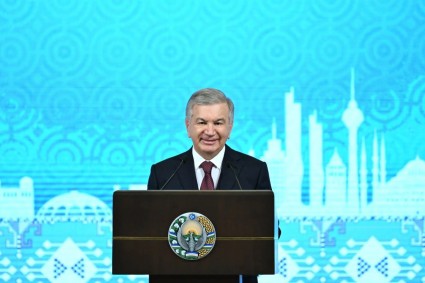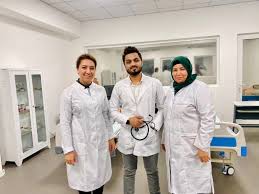On December 8, Uzbek Foreign Minister Abdulaziz Kamilov made remarks at the second Italy-Central Asia ministerial meeting. Abdulaziz Kamilov underscored that Uzbekistan welcomes Italy's growing interest in Central Asia. Uzbekistan authorities believe that this format has significant potential for enhancing multifaceted and sustainable cooperation between Italy and the countries of the region.
The Foreign Minister highlighted the reputation and influence of Italy in the European Union, the UN and other leading world platforms like the G7 and G20.
“In our opinion, Rome could assist in promoting urgent issues facing Uzbekistan and other Central Asian countries at the international level,” the minister said.
Among such issues is the provision of regional security and stability against the background of growing tension in some areas.
“This also suggests cooperation on Afghanistan, in particular in terms of coordinating efforts to help normalize the situation in this country, as well as the delivery of humanitarian supplies for its population,” Abdulaziz Kamilov said.
In addition, he said, Italy can play an important role in ensuring the sustainable economic development of Uzbekistan and neighboring countries.
“Transfer industrial and technological potential, innovation and know-how, as well as investments and soft loans from Italy can contribute to the creation of high-tech enterprises in our country, producing a wide range of products for the local market and export,” the minister said.
Uzbekistan also sees great potential for collaboration with Italy within the framework of the European Union's GSP + and the World Trade Organization's general system of preferences, as well as in matters of standardization, certification and logistics, in order to increase exports from the Central Asian region.
“Moreover, given the new perspectives that were identified and discussed during the Tashkent Conference on Regional Connectivity of Central and South Asia in July this year, our platform with Italy could open up additional economic and logistical opportunities for all countries involved,” the minister said. ...
Abdulaziz Kamilov dwelled on the situation in Afghanistan, recalling Uzbekistan’s position.
“We believe that in the current realities it is necessary to conduct a constructive dialogue with the new authorities of Afghanistan in order to avoid the re-transformation of this long-suffering country into a so-called 'rogue state',” he said.
Today the Afghan people find themselves in a very difficult situation, the current humanitarian situation in the country is close to catastrophic, the minister recalled.
“It is necessary to provide a humanitarian corridor to Afghanistan in order to prevent a humanitarian catastrophe. We also call on the world community to take measures to lift sanctions, unfreeze Afghanistan's international assets and help restore the country's banking system, ”the Foreign Minister said.
He added that Uzbekistan considers it important to develop a post-conflict strategy towards Afghanistan. The priority, he said, should remain more active involvement of Afghanistan in regional integration processes of an economic nature, as well as the implementation of socio-economic projects in the country.
The minister recalled that Uzbekistan expects that the new authorities of Afghanistan will perform their international obligations: the creation of an inclusive government, the fight against terrorism and drug trafficking, the prevention of the deployment of terrorist groups on the territory of the country, the termination of contacts with them, the maintenance of good-neighborly relations with the countries of the region, human rights and freedoms, including women and national minorities.
According to the Ministry of Foreign Affairs, during the ministerial conference, the delegations discussed interaction between the countries of Central Asia and Italy, noted the importance of joint response to modern challenges and threats. The ways of solving environmental problems in the region, preventing transnational threats of extremism and terrorism, as well as strengthening interethnic harmony and ties of peoples are analyzed.
Within the framework of the sessions, mechanisms were considered for improving regional economic partnership, increasing the efficiency of interaction in the areas of trade and investment, transport and transit. Attention was paid to the implementation of joint projects in the fields of energy, agribusiness and industrial equipment. Priority areas of joint efforts in the field of healthcare were identified, with an exchange of views on measures to counter the pandemic and overcoming its consequences.
As part of the conference, a "round table" was also organized on the topic: "The current state and prospects for the development of scientific cooperation between Central Asia and Italy", which was attended by leading Central Asian and Italian experts. The participants reviewed conceptual models of regional governance, sustainable and inclusive development, issues of protection and promotion of cultural heritage, activation of scientific and academic contacts.















